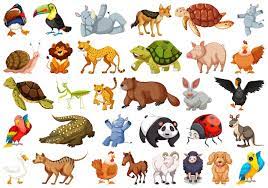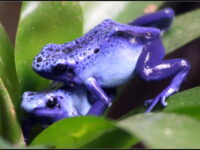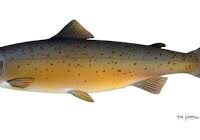We live with two different realities when we interact with animals. We call our pets our “four-legged friends,” appreciate their personalities, love them, and sense their emotions. But for our livestock, such as pigs, cows, and goats, we see eyes devoid of emotion that stare blankly into the distance and don’t think twice when biting into a hamburger. A series of recent scientific findings show that how we view our pets is much closer to the truth.
In a remote and unassuming campus in the middle of Dummerstorf, Germany, the Research Institute for Farm Animal Biology (FBN) is home to pastures, classic red barns, yellow stables, and the occasional dung piles. The institute, a global leader in neurological research in livestock, is working to prove that the animals we have lived off of for centuries display cognitive functions at levels similar to that of our pets. At FBN, cognitive psychologists — who typically study processes in the human brain, such as how humans think, learn, and make decisions — are applying their expertise to animals. Understanding the mental framework and happenings in livestock could largely influence our treatment toward them, serve as a piece of evidence supporting the vegetarian movement, and perhaps even lead to more widespread shifting cultural perspectives.
Liza Moscovice, a scientist at FBN, is studying if animals have empathy. It’s a trait that arises from the limbic system, a structure found in both farm animals and humans that plays a critical role in emotional response. Mascovice put this to the test in piglets by introducing a new box in their pen that, when opened by their snouts, traps the curious piglet inside. Moscovice and her team discovered that when a piglet got trapped, the others freed their friend within 20 minutes 85% of the time. The piglets were more likely to come to the rescue and open the box when a piglet was inside than when no one was trapped. These results suggest that pigs respond to others in distress, signaling a key empathetic trait.
The institute also studies the animals’ abilities to learn, including if they could potty train cattle. Researchers associated with FBN successfully taught cows how to hold their bladders and urinate on a designated patch of artificial turf. They learned at a faster rate than children, demonstrating that cattle have an introspective awareness and understand what’s going on in their bodies.
Many of these scientifically overlooked animals display human traits, enticing scientists to further investigate if these arise from deeper similarities in their brain functions. While the story of how dogs evolved alongside humans is a common and true piece of folklore in our culture, the same story isn’t told about farm animals. Yet, when FBN researchers confronted goats with a food bowl they couldn’t access, their study showed that, similar to dogs, the goats looked toward the humans for help, a sign of coevolution.
“Many of these scientifically overlooked animals display human traits, enticing scientists to further investigate if these arise from deeper similarities in their brain functions. “
These three findings, among others from FBN, demonstrate that there is complexity behind the mental and emotional lives of livestock, refuting the popular notion that they are dumb and mindless creatures. More research needs to be conducted into the cognitive perspectives of these animals before changes are implemented both culturally and institutionally. Nevertheless, these astounding discoveries possess the knowledge to better understand livestock and their needs, because without them, they may continue to be inadequately treated.






